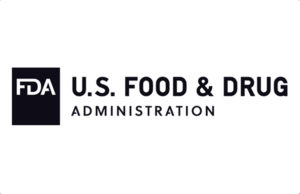 The FDA announced as part of its annual budget proposal that it will include $21.6 million for a new Resilient Supply Chain and Shortages Prevention Program (RSCSPP).
The FDA announced as part of its annual budget proposal that it will include $21.6 million for a new Resilient Supply Chain and Shortages Prevention Program (RSCSPP).
Funding from the RSCSPP for the Center for Devices and Radiological Health (CDRH) will provide — the FDA says, for the first time — resources to establish a permanent program for U.S. supply chain resilience for medical devices.
Having implemented the Coronavirus Aid, Relief and Economic Security Act (CARES Act) in 2020, the FDA observed weaknesses in the medical device supply chain and the dependence on foreign medical devices. The implementation of the RSCSPP aims to take resources and expand authority to ensure that the U.S. is prepared to secure its medical device supply chain.
The focus of the funding as part of the FDA’s fiscal 2022 budget centers around strengthening the domestic supply chain through investments in preventive measures, identifying potential medical product supply shortfalls, continuing surveillance and rapid intervention.
New authorities enacted through the CARES Act enabled the FDA to obtain information about supply chain disruptions, but those relating to device shortages are more limited than those available for drug shortages. In addition, the pandemic brought light to the notion that building infrastructure and establishing an understanding of a supply chain comes too late in the midst of a public health emergency, FDA acting commissioner Dr. Janet Woodcock wrote in a statement about the FDA’s budget.
“To assure a more resilient domestic supply chain, prevent shortages before they occur, and reduce dependence on foreign production, the FDA needs expanded authority to obtain supply disruption notifications for critical devices any time there is the potential for a shortage (removing the temporal limitation to PHEs),” Woodcock said. “In addition, the FDA has requested that these notifications include production volume information to help facilitate conducting fuller oversight of supply chain disruptions.
“The FDA has also requested authority to require manufacturers to develop and share risk management plans and identify alternate suppliers and manufacturing sites, as well as authority for the FDA to allow temporary importation of unapproved devices, with appropriate controls, when in the interest of the public health.”
FDA officials think the RSCSPP will enhance CDRH’s capacity for rapid intervention to prevent and mitigate supply chain interruptions with proactive regulatory measures and partnerships with industry, healthcare providers, patients and others. It could also develop and apply state-of-the-art supply chain intelligence for predictive modeling.
Additionally, the RSCSPP will provide early signal detection and continuous surveillance to foster a more resilient domestic supply chain through investments in preventive measures, averting shortages before they occur.
“This dedicated funding will strengthen CDRH’s capability to respond in everyday situations, as well as in emergencies,” Woodcock said. “Funding for a permanent device shortages program at the FDA is critical to decrease or eliminate the risk of medical device supply chain shortages, and part of the agency’s overall investment in core FDA safety programs.
“We look forward to continuing to work with Congress to ensure the FDA has the resources and authority it needs to carry out our vital public health mission to protect and promote the public health.”




